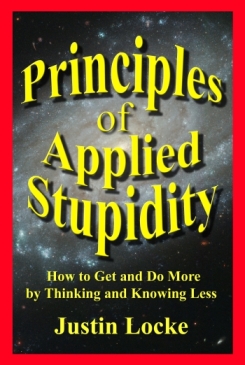Whenever I am introduced as a speaker, the person who owns the event always stands up and reads an introduction which is essentially a laundry list of my various achievements in life.
Beyond being customary, I suppose it is important for the event “owner” to present my bona fides to the audience. We certainly don’t want to give the impression that I was just some guy walking past and thrown into the breech to fill time.
However, I also find that, however complimentary these introductions may be, there are a few dark sides to them.
First of all, for me, it really comes on too strong. Maybe I am being overly modest, but the audience, too, has succeeded at many things, but I don’t always get a chance to hear about that. Audiences are people too, and I hate risking making anyone feel like their achievements are not just as important. If the audience is impressed with me, that may help me (or it may make it harder to connect with them), but either way, it really doesn’t help my audience in ways that I would like. Instead of belittling my audience, I would much prefer that audiences, after hearing me talk, will say to themselves, “If that guy can do it, how hard can it be?? I’ll try it.”
Worse, an introduction that is made up of nothing but achievements is really somewhat untrue, as they never include all my many failures.
Yes, I have successfully self- published two books, but I also unsuccessfully wrote and tried to publish three books before I figured out what the heck I was doing. Yes, I have 2 family concert programs that circle the globe, and they are massive successes on many levels, but there are 9 children’s musical pieces I wrote that were, for the most part, duds. Yes, I played in the Boston Symphony, but I was also thrown out of my high school’s “pit band” for having “bad intonation.”
For a long time I used to sweep all that history of failure under the rug, but now I am eager to share it. This is because 1) it preaches what I practice, which is persistence is more important than talent, and 2) if I had not put myself into a position of experiencing these failures, I never would have acquired the skills and knowledge necessary for the success I have achieved, however sporadically. (btw, this is an extension of one of the Principles of Applied Stupidity, i.e., “Failure is Good.”)
The other thing that is so key to having failure “chops” is that, because failure is such an ugly thing and so many people want to avoid it, they become overly dependent upon outside advice. Of course it is wise to get expert advice when you can. BUT . . . it’s essential to balance that general outside advice with what is unique about your problem and what is unique about your own ability to solve your problem.
If failure is not tolerated in your company or your life, and you outsource all risk of failure, your best possible outcome will be to end up dead center of the pack.
On the other hand, if you go headlong into potential failure, there is a risk of failure of course, but there is also the possibility that when you get yourself personally into the thick of things, you will think of unique new solutions that no consultant has ever dreamed of. And you will own them.

I used to read books about self publishing, but I finally had to stop, because all I was getting was a lot of generic utopian advice. 99% of my methods of writing, editing, sales, and promotion have been custom made by myself, for myself. Generally speaking, I am batting about .375, and that puts me in the all-time top 1% of all authors. Hey, what works, works.
© Justin Locke
